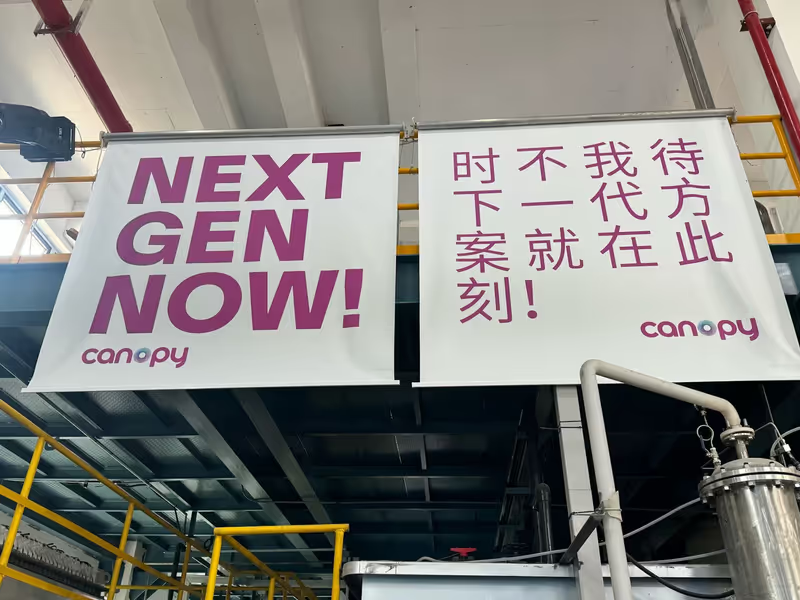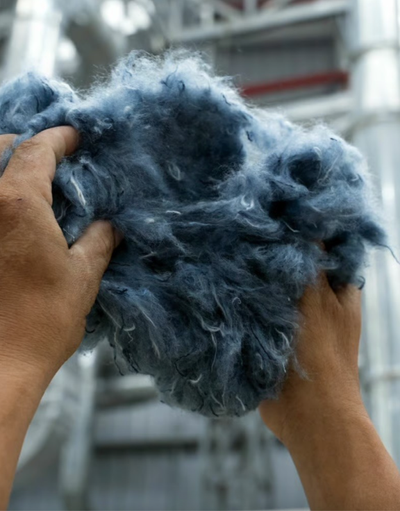In a significant step forward for the circular fashion economy, Yibin Grace – a leading producer of man-made cellulosic fibre (MMCF) products – has opened China’s first recycled textile dissolving pulp facility. Located in Sichuan Province, the pilot plant marks a milestone in shifting the global viscose supply chain towards more sustainable and resilient sources.
The facility, developed in collaboration with environmental non-profit Canopy, will convert post-industrial and post-consumer textile waste into high-quality, low-carbon dissolving pulp. This pulp can be used in a wide range of MMCF applications, including viscose staple fibre, filament yarn, and lyocell, helping to reduce the industry’s reliance on virgin forest fibre.
With an initial annual capacity of 1,500 tonnes, the site is designed to support China's national goal of cutting textile waste by 30% by 2030. Plans are already in place to scale the operation to 60,000 tonnes per year by 2027, contingent on market demand and support. The project builds on the pioneering groundwork laid by earlier innovators such as Circulose, and reflects growing global momentum for Next Gen Solutions in the fashion sector.
Nicole Rycroft, founder and executive director of Canopy, welcomed the development, noting: “Expanding circular production positions the sector to withstand supply volatility associated with increased forest fires and to capture markets looking for low-impact materials. We look forward to Yibin scaling this technology to commercial levels and being an early-solution provider to the textile sector. This is just the beginning!”
Yibin Grace has a total production capacity of 450,000 tonnes per year of viscose staple fibre, filament yarn, and lyocell products. It was one of the first producers to incorporate Circulose recycled pulp into its ReGracell product lines, and has maintained a close collaboration with Canopy since 2018. The company earned a Dark Green Shirt in Canopy’s 2024 Hot Button Report, indicating no known sourcing from Ancient and Endangered Forests.
The launch of this facility highlights the increasing demand from brands and consumers alike for climate-friendly alternatives to conventional viscose, and underlines China's growing role in the global transition to circular textile manufacturing.






